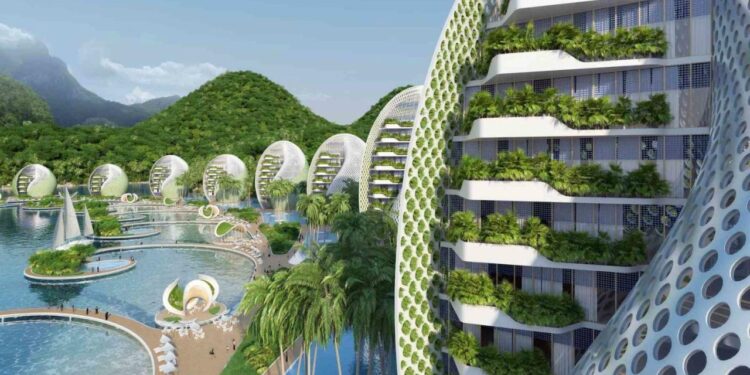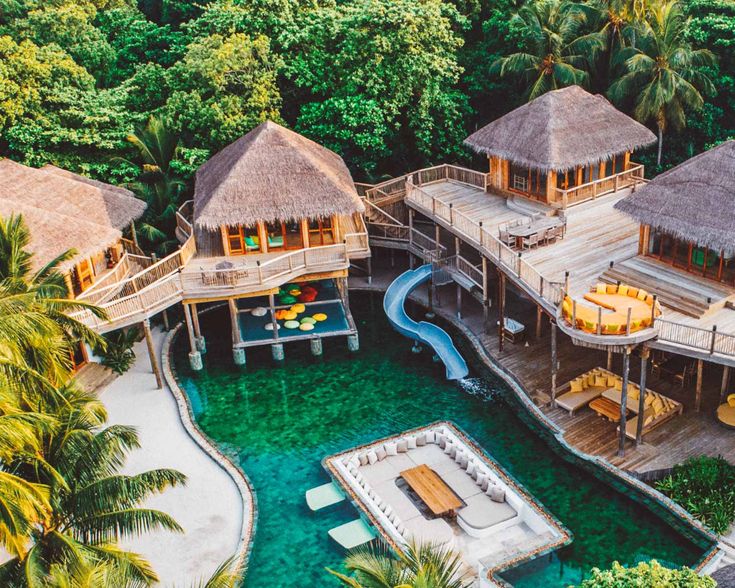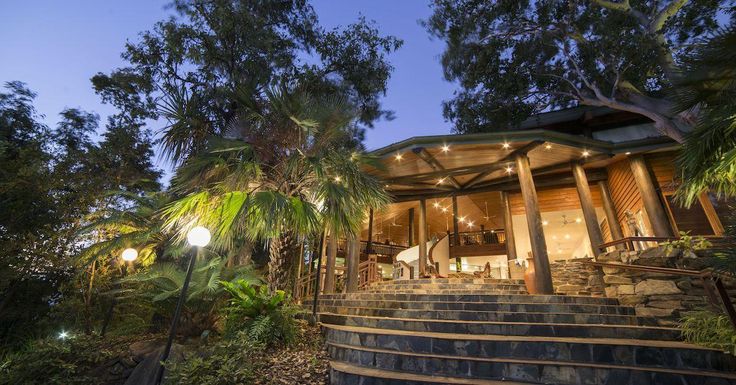The global tourism industry, a colossal engine of economic growth and cultural exchange, is simultaneously a significant contributor to environmental degradation and social challenges. As awareness of climate change, resource depletion, and community well-being intensifies, the imperative for sustainable tourism has never been more urgent. At the forefront of this critical transformation are hotels, the very anchors of the travel experience. Their innovations, ranging from groundbreaking eco-conscious designs to revolutionary operational practices and deep community engagement, are not merely about reducing harm. They are about pioneering a new blueprint for hospitality, demonstrating that luxury, comfort, and profitability can coexist with ecological stewardship and social responsibility. These hotel innovations are shaping a truly sustainable future for travel.
The Urgency for Green Hospitality: Why Sustainability Matters
To fully grasp the critical role of hotel innovations in sustainable tourism, it’s essential to understand the multifaceted impact of the industry and the growing demand for more responsible practices.
A. The Environmental Footprint of Tourism
The sheer scale of global tourism exerts immense pressure on natural resources and ecosystems.
- High Energy Consumption: Hotels, with their constant need for lighting, heating, cooling, and water heating, are energy-intensive. This often translates to significant greenhouse gas emissions, particularly when relying on fossil fuels.
- Excessive Water Usage: From laundry and swimming pools to guest amenities and landscaping, hotels consume vast quantities of fresh water, often in regions already facing water scarcity.
- Waste Generation: Tourists, often unfamiliar with local waste management systems, contribute to significant volumes of solid waste, including plastics, food waste, and non-recyclable items, straining local infrastructure and leading to landfill burden.
- Biodiversity Loss and Habitat Degradation: Development of resorts and tourism infrastructure can lead to the destruction of critical habitats (e.g., coastal mangroves, coral reefs, forests), impacting biodiversity. Tourist activities (e.g., irresponsible diving, wildlife interactions) can further harm sensitive ecosystems.
- Pollution (Air, Water, Noise): Transportation to and from destinations (flights, cars), chemical runoff from pools and cleaning, and noise from tourist activities contribute to various forms of pollution, affecting local communities and environments.
B. Social and Cultural Impacts
Beyond the environment, tourism can profoundly affect local communities and their cultural heritage.
- Cultural Erosion/Commodification: Influx of tourists can lead to the commercialization of local customs, traditions, and crafts, turning authentic experiences into staged performances, potentially eroding their genuine meaning.
- Economic Leakage: A significant portion of tourism revenue often ‘leaks’ out of the local economy to international tour operators, foreign-owned hotels, or imported goods, limiting benefits for local residents.
- Displacement of Local Communities: Land acquisition for large-scale tourism developments can lead to the displacement of indigenous populations or traditional agricultural lands.
- Increased Cost of Living: A booming tourism industry can inflate prices for housing, food, and services, making them unaffordable for local residents.
- Strain on Public Services: Increased tourist numbers can put immense strain on local public services like water supply, sanitation, transportation, and healthcare, particularly in small communities.
C. Growing Demand for Responsible Travel
Consumers, investors, and regulatory bodies are increasingly demanding more sustainable practices within the tourism sector.
- Eco-Conscious Travelers: A growing segment of travelers actively seeks out environmentally responsible and socially conscious accommodation and experiences. They are willing to pay a premium for certified sustainable options.
- Investor Pressure: Investors are increasingly scrutinizing environmental, social, and governance (ESG) performance, making sustainable practices a factor in investment decisions for hotel chains.
- Regulatory Push: Governments worldwide are implementing stricter environmental regulations, carbon taxes, and sustainability targets for the tourism and hospitality sectors.
- Brand Reputation: Embracing sustainability enhances brand reputation, attracts eco-conscious customers, and improves employee morale and recruitment, becoming a competitive differentiator.
These factors create a clear imperative for hotels to innovate in sustainability, moving beyond mere compliance to genuine leadership.
Pioneering Hotel Innovations for Environmental Stewardship
Hotels are implementing groundbreaking innovations to drastically reduce their environmental footprint, setting new benchmarks for green hospitality.
A. Sustainable Design and Construction
The commitment to sustainability often begins with the very structure of the hotel, integrating eco-friendly principles from the ground up.
- Bioclimatic Architecture: Designing buildings that naturally adapt to local climate conditions to minimize energy consumption for heating and cooling. This includes strategic orientation, natural ventilation systems, optimized shading, and thermal massing.
- Locally Sourced and Recycled Materials: Prioritizing the use of materials sourced locally to reduce transportation emissions, and incorporating recycled content (e.g., reclaimed timber, recycled steel, upcycled furniture) to minimize demand for virgin resources.
- Green Roofs and Vertical Gardens: Installing green roofs and vertical gardens that improve insulation, reduce urban heat island effect, manage stormwater runoff, provide habitat for local fauna, and enhance aesthetic appeal.
- Modular Construction: Utilizing off-site, prefabricated modular units for hotel construction reduces on-site waste, speeds up build times, and allows for greater quality control in factory settings, potentially minimizing environmental disruption.
- Low-Impact Foundations: Choosing foundation types that minimize disruption to sensitive ecosystems, such as pile foundations in wetland areas to preserve hydrological flows.
B. Radical Energy Efficiency and Renewable Integration
Hotels are making aggressive strides in reducing energy consumption and transitioning to clean power sources.
- Smart Building Management Systems (BMS): Advanced BMS use AI and IoT sensors to intelligently control lighting, HVAC, and power distribution based on occupancy, weather forecasts, and real-time demand, dramatically optimizing energy use.
- Renewable Energy Generation: Installing on-site renewable energy systems, such as solar panels (photovoltaic and thermal for water heating), small wind turbines, or even geothermal heat pumps, to generate clean power and reduce reliance on fossil fuels.
- Passive Design Strategies: Maximizing natural light and ventilation, using high-performance insulation, and designing building envelopes that reduce heat gain/loss, thereby minimizing the need for artificial lighting and air conditioning.
- LED Lighting and Sensor Controls: Widespread adoption of energy-efficient LED lighting, coupled with occupancy sensors and daylight harvesting controls, to ensure lights are only on when needed and at optimal brightness.
- Cogeneration (CHP) Plants: Installing combined heat and power (CHP) systems that simultaneously generate electricity and useful heat from a single fuel source, significantly increasing energy efficiency.
C. Revolutionary Water Management
Water conservation is critical, especially for hotels in water-stressed regions.
- Greywater Recycling Systems: Treating and reusing wastewater from sinks, showers, and laundry for non-potable purposes like toilet flushing, irrigation, and cleaning, significantly reducing fresh water consumption.
- Rainwater Harvesting: Collecting and storing rainwater for irrigation, toilet flushing, or even laundry, reducing reliance on municipal water supplies.
- Low-Flow Fixtures and Appliances: Installing water-efficient showerheads, faucets, toilets, and laundry machines that drastically reduce water consumption without compromising guest experience.
- Smart Irrigation Systems: Using moisture sensors and weather data to optimize irrigation schedules for landscaping, preventing overwatering and minimizing water waste.
- On-site Wastewater Treatment: Developing advanced on-site wastewater treatment plants that purify wastewater to a high standard, allowing for safe discharge or even reuse, reducing pollution to local water bodies.
D. Waste Reduction and Circularity Initiatives
Hotels are adopting comprehensive strategies to minimize waste and promote a circular economy model.
- Elimination of Single-Use Plastics: Phasing out single-use plastic bottles, toiletries, and packaging, replacing them with refillable dispensers, glass bottles, and sustainable alternatives.
- Composting Organic Waste: Implementing robust composting programs for food waste from kitchens and restaurants, diverting significant organic matter from landfills and creating valuable soil amendments.
- Advanced Recycling Programs: Going beyond basic recycling to include difficult-to-recycle items, partnering with specialized recycling facilities, and ensuring proper segregation of waste streams.
- Upcycling and Repurposing: Finding creative ways to repurpose old furniture, linens, and other items, giving them a new life rather than sending them to landfills.
- Food Waste Management Technologies: Utilizing smart bins, AI-powered food waste tracking systems, and partnerships with food banks to minimize food waste throughout the supply chain.
Innovations for Social Responsibility and Community Engagement
Sustainable tourism extends beyond environmental protection to encompass profound social and cultural responsibility, ensuring hotels contribute positively to the well-being of local communities.
A. Empowering Local Communities Through Employment and Sourcing
Hotels are becoming catalysts for local economic development by prioritizing community benefit.
- Preferential Local Hiring: Actively recruiting and prioritizing local residents for all levels of employment, from entry-level positions to management, providing stable jobs and career development opportunities.
- Fair Wages and Ethical Labor Practices: Ensuring fair wages, safe working conditions, and adherence to international labor standards for all employees and within their supply chains.
- Local Sourcing of Goods and Services: Prioritizing procurement of food, beverages, amenities, and operational services from local farmers, artisans, and businesses. This keeps tourism revenue within the local economy, supports local livelihoods, and reduces supply chain emissions.
- Support for Local Artisans and Businesses: Providing platforms or retail spaces within the hotel for local artisans to sell their crafts, or partnering with local tour operators for excursions, ensuring cultural preservation and economic benefit.
B. Protecting and Promoting Cultural Heritage
Hotels are playing a vital role in safeguarding and celebrating the cultural essence of their destinations.
- Authentic Cultural Experiences: Offering guests genuine cultural immersion activities (e.g., cooking classes with local chefs, traditional dance performances, artisan workshops) that respect and promote local heritage, rather than commodifying it.
- Integration of Local Architecture and Design: Incorporating traditional architectural styles, building materials, and design elements into hotel aesthetics, reflecting the local cultural identity.
- Support for Cultural Preservation Projects: Investing in or partnering with local organizations dedicated to preserving historical sites, traditional arts, languages, or indigenous knowledge.
- Educational Programs for Guests: Providing information and educational materials to guests about local customs, history, and environmental sensitivities, fostering respectful and responsible behavior.
C. Philanthropy and Community Development Initiatives
Many hotels are actively engaging in philanthropic efforts and direct community development projects.
- Community Development Programs: Funding or running initiatives focused on improving local education, healthcare, sanitation, or infrastructure, directly benefiting the residents.
- Conservation Partnerships: Collaborating with local environmental organizations on conservation efforts, such as marine protected areas, reforestation projects, or wildlife rehabilitation, often involving guest participation.
- Skills Training and Mentorship: Offering training programs and mentorship opportunities for local youth to develop skills relevant to the hospitality industry, creating pathways to employment.
- Volunteer Programs for Guests: Organizing opportunities for guests to participate in community service or environmental projects during their stay, fostering a deeper connection and sense of contribution.
D. Transparent Reporting and Certification
Accountability and transparency are crucial for genuine social responsibility.
- Sustainability Reporting: Publicly disclosing environmental and social performance data, often aligned with international reporting frameworks (e.g., GRI Standards).
- Third-Party Certification: Obtaining recognized sustainability certifications (e.g., LEED, Green Globe, EarthCheck, GSTC-recognized certifications) that provide independent verification of sustainable practices, building trust with consumers.
- Stakeholder Engagement: Actively engaging with local communities, NGOs, employees, and suppliers to understand their concerns and integrate their perspectives into sustainability strategies.
The Road Ahead: Future Innovations in Sustainable Hotels
The journey towards truly sustainable tourism is ongoing, and hotels are continuously pushing the boundaries of innovation, driven by technology, consumer demand, and a deeper commitment to planetary well-being.
A. AI-Powered Sustainability Optimization
Artificial intelligence will play an even more central role in optimizing hotel operations for sustainability.
- Predictive Resource Management: AI models will predict energy and water demand based on occupancy, weather forecasts, and guest behavior patterns, allowing for hyper-efficient resource allocation and minimizing waste.
- Automated Waste Segregation: AI-powered robotics and vision systems will automate waste sorting and recycling processes within hotels, improving efficiency and accuracy of waste diversion.
- Personalized Sustainability Prompts: AI-driven platforms will offer personalized suggestions to guests on how to reduce their footprint (e.g., optimal thermostat settings, towel reuse reminders, local public transport options), based on their preferences and habits.
- Supply Chain Transparency: AI and blockchain will enhance traceability in the supply chain, ensuring that all sourced products meet stringent sustainability and ethical standards from farm to table.
B. Advanced Circular Economy Models and Material Innovation
Hotels will move beyond just recycling to truly embrace circularity, designing out waste and pollution.
- Bio-based and Compostable Materials: Widespread adoption of bio-based, biodegradable, and compostable materials for amenities, packaging, and even construction components.
- Closed-Loop Systems: Implementing closed-loop systems for specific resources (e.g., water recycling for all uses, nutrient recovery from wastewater for urban farming, on-site energy generation from organic waste).
- Product-as-a-Service (PaaS) Models: Shifting from ownership to services for certain items (e.g., renting linens from a circular textile company that reprocesses them) to reduce waste and optimize material flows.
- Upcycling on a Grand Scale: Designing hotel interiors and amenities using upcycled materials and furniture, showcasing creative reuse and reducing demand for new production.
C. Hyper-Local and Regenerative Tourism Models
The focus will shift from minimizing negative impacts to actively creating positive ones.
- Regenerative Tourism: Hotels will design experiences that actively improve the environment and local communities, leaving the destination better than they found it (e.g., restoring degraded ecosystems, participating in community-led conservation efforts, revitalizing local traditions).
- Agri-Tourism and Food Sovereignty: Hotels growing their own food on-site or forming ultra-local partnerships with farmers to offer hyper-seasonal, zero-mile cuisine, reducing food miles and supporting local food systems.
- Indigenous-Led Experiences: Prioritizing partnerships and business models that empower indigenous communities to lead and control cultural tourism experiences, ensuring authenticity, respect, and equitable benefit sharing.
- Carbon-Negative Operations: Ambitious hotels aiming to achieve net-negative carbon emissions through aggressive energy efficiency, 100% renewable energy, and investments in verifiable carbon removal projects.
D. Digital Twins and Predictive Sustainability Management
The rise of Digital Twin technology will provide unprecedented insights for sustainable operations.
- Virtual Replica of Hotel Operations: Creating a digital twin of the entire hotel building and its operational systems (HVAC, water, waste, energy grids).
- Real-time Optimization: Using the digital twin to simulate different operational scenarios, predict energy and water consumption, identify inefficiencies, and optimize resource use in real-time.
- Predictive Maintenance for Green Infrastructure: Monitoring the performance of renewable energy systems, water recycling plants, and other green infrastructure components to ensure their optimal operation and longevity.
E. Gamification and Immersive Guest Engagement
Hotels will use technology and creative approaches to engage guests more actively in sustainability efforts.
- Guest Engagement Apps: Mobile apps that provide guests with real-time feedback on their environmental footprint during their stay, offer rewards for sustainable choices, and suggest local eco-friendly activities.
- Interactive Displays: Lobby or room displays showcasing the hotel’s sustainability initiatives, energy savings, and community impact, making sustainability visible and tangible for guests.
- Educational Experiences: Offering immersive educational programs or workshops on local ecology, conservation, or cultural heritage, making learning about sustainability part of the guest experience.
Conclusion
The journey towards sustainable tourism is not a fleeting trend but a fundamental recalibration of an industry that impacts every corner of our planet. At the vanguard of this critical shift are hotel innovations, transforming the very essence of hospitality. From pioneering eco-conscious architectural designs that minimize environmental footprints to revolutionary operational practices that optimize resource use and groundbreaking initiatives that deeply engage with and empower local communities, hotels are redefining what it means to travel responsibly.
The past era, marked by resource intensity and sometimes inadvertent social impacts, is giving way to a future where hotels are not just places to stay, but active stewards of the environment and catalysts for community well-being. While significant challenges remain in scaling these innovations and ensuring widespread adoption, the accelerating demand for responsible travel, coupled with technological advancements like AI and Digital Twins, points towards an increasingly sustainable and regenerative future for hospitality. Ultimately, these hotel innovations are proving that luxury and comfort can harmoniously coexist with ecological stewardship and genuine social responsibility. They are truly shaping the future of travel, one green stay at a time.










